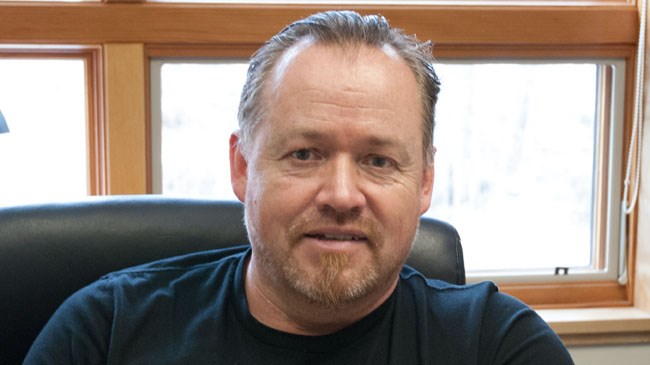Nipissing First Nation’s debendaagziwaad (citizenship) committee continues to set the foundation for a citizenship law that will outline the rights and obligations of citizens. The committee formed in 2018 and consists of seven members, including Chief Scott McLeod and councillor Daniel Stevens, who chairs the committee.
Lately, their monthly meetings have focused on developing the “core principles for the proposed laws” prior to drafting the document, Stevens explained. These principles will serve as the foundation for the new law and reflect Nipissing First Nation’s “values, beliefs, and vision for the future.”
Why create a citizenship law? The committee has discussed this at length and have come up with a few reasons. The Nation wants “to ensure the continued existence of Nipissing people into future generations,” Stevens noted in the March issue of Enkamgak, the First Nation's newsletter.
“To support our sovereign ability and responsibility of self-governance” is another reason the committee wants to draft the law, as is the desire “to identify who are responsible for building and honouring our Nation, who are entitled to protection within our Nation, and who are entrusted with the future of the Nation.”
The purpose is to “reassert our jurisdiction over our own territory,” Stevens explained, and the committee is “focusing on creating laws for our people that aren’t bound to that Canadian Status membership mentality.”
He emphasized that membership and citizenship are not necessarily the same, as membership stems from the Indian Act, and “citizenship is really something broader than that, and that’s what we as a committee are working towards.”
As such, the committee members continue to consider “what it means to be Anishinaabe Nbisiing for us?” and to emphasize this identity without “relying on Canada to make that determination, that we determine that for ourselves.”
The Indian Act “usurped that control,” and the committee is determined to “reassert that self-determination” to establish their own concept of what it means to be a citizen and what the responsibilities and duties of that role are.
For example, Canada’s citizenship responsibilities—as outline on the Government of Canada’s website—include obeying the law, taking responsibility for oneself and one’s family, serving on a jury, voting in elections, and helping others in the community.
“The idea of citizenship and belonging is really core to a lot of social constructs and social understandings,” Stevens said, and delving into these topics with the committee has sparked “a lot of great discussions.”
See: Nipissing First Nation preserves culture through Nishnaabemwin language classes
He has enjoyed the work, the research, and sharing the committee’s findings and ideas with the community. Overall, the process “allows us to come together as a whole nation, and sort of break away from that mindset of membership and into a holistic citizenship mindset that is truly ours. Because we are a nation.”
“We have a contracted treaty with Canada,” Stevens said, “but we never gave up rights to self-determine ourselves,” although the power to create citizenship laws “have been inhibited” throughout the years since the Indian Act was passed in 1876.
The Act, coupled with “the history of residential schools” have worked to destroy those “core beliefs” that the committee wants to enshrine in their citizenship law, and “I’m so proud that we’re reasserting that now,” Stevens said. “I’m part of this mechanism to make our Nations whole once again as they should be.”
To facilitate the process, the committee has drawn from other First Nations— “these talks are occurring in many First Nations,” Stevens said—to gain insight into other citizenship laws. There will be differences as “each Nation has the right and the responsibility to do what is best for them.”
Stevens explained this work is moving away from the Indian Act membership model, which is “no longer the gold standard,” and looks forward to continuing the process of creating the new law.
“It’s a very exciting time,” he said. “There’s a lot of difficult work to be done but it is exciting to be a part of it.”
Nipissing First Nation “is on the cutting edge of a lot of this stuff,” he explained, and “I’m so proud to be a part of this Nation, and I’m always in awe of my people and what they do.”
David Briggs is a Local Journalism Initiative reporter who works out of BayToday, a publication of Village Media. The Local Journalism Initiative is funded by the Government of Canada.



